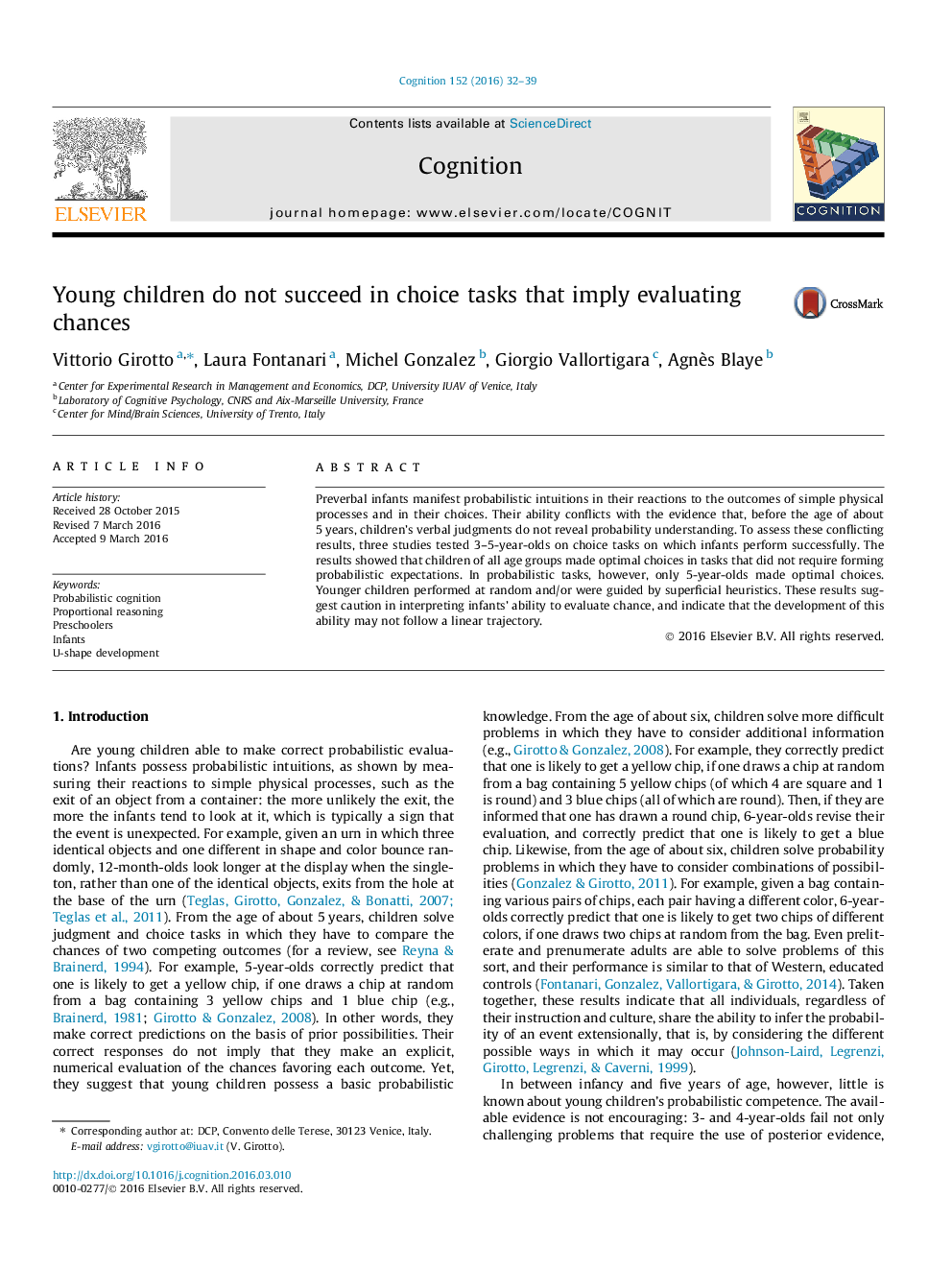| Article ID | Journal | Published Year | Pages | File Type |
|---|---|---|---|---|
| 7286134 | Cognition | 2016 | 8 Pages |
Abstract
Preverbal infants manifest probabilistic intuitions in their reactions to the outcomes of simple physical processes and in their choices. Their ability conflicts with the evidence that, before the age of about 5Â years, children's verbal judgments do not reveal probability understanding. To assess these conflicting results, three studies tested 3-5-year-olds on choice tasks on which infants perform successfully. The results showed that children of all age groups made optimal choices in tasks that did not require forming probabilistic expectations. In probabilistic tasks, however, only 5-year-olds made optimal choices. Younger children performed at random and/or were guided by superficial heuristics. These results suggest caution in interpreting infants' ability to evaluate chance, and indicate that the development of this ability may not follow a linear trajectory.
Related Topics
Life Sciences
Neuroscience
Cognitive Neuroscience
Authors
Vittorio Girotto, Laura Fontanari, Michel Gonzalez, Giorgio Vallortigara, Agnès Blaye,
